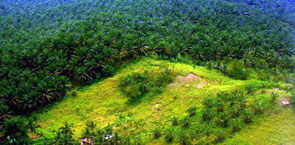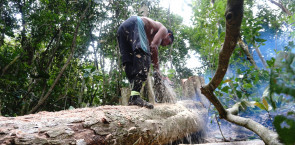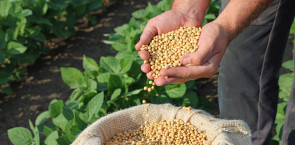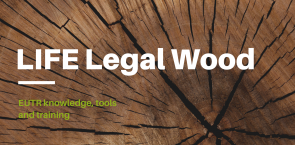
A ground-breaking CSR project seeks to help Danish companies in responsible sourcing of forest risk commodities such as palm oil, soya, beef and rawhide. Several leading retailers in Denmark back the initiative.
Are your shoes, handbag and lipstick related to forests? The answer could easily be yes – there is a risk that those products are linked to deforestation.

The same goes for many other products that we all use in our everyday lives – and which contain soya, palm oil, beef or leather.
Links to illegal logging
Tropical forests are cleared – often illegally - to give way to plantations, agriculture or grazing. Deforestation causes carbon emissions, drives plants and animals homeless and impairs the livelihoods of local people.

According to an analysis from the NGO FERN ,”in 2012 the EU imported roughly a quarter of all the internationally traded soya, beef, leather and palm oil that had been grown on illegally cleared tropical forestland. This European trade had a value of EUR 6 billion, and was equivalent to illegally felling a forest the size of a football field every two minutes.”
Most companies prefer to avoid trading in products that contribute to deforestation and illegal harvesting. However, this is easier said than done. Complex supply chains and lack of information on the risk factors that exist in each country make the task almost impossible for the individual company.
New approach to deforestation-free sourcing
A new project is looking to address this challenge. It will assess risks of forest impact related to specific products in selected countries. It will also develop tools that help Danish companies in responsible sourcing of soya, palm oil, beef and rawhide. The project is supported by Denmark’s development cooperation DANIDA.

The project will develop and test a method for evaluating the risk of forest commodities being linked to deforestation. Using this method, the project will produce 20 risk profiles for selected countries and products. The profiles will describe specific risks and recommend effective ways to address each risk. In addition, the project will provide training and raise awareness of the new tools amongst Danish companies.
NEPCon has developed the project in collaboration with SEGES, a key Danish agricultural knowledge hub. SEGES provides advice for companies using animal feed and semi-manufactures containing soya and palm oil.
“Our target groups are facing challenges in securing responsible supply chains right back to the forest level,” says chief consultant Gustaf Bock of SEGES.
Certification systems exist for some of the products, e.g. Roundtable of Sustainable Palm Oil (RSPO) for sustainable palm oil. ”However, there are far from enough certified products on the market,” says Mr Bock.
NEPCon Executive Director Peter Feilberg comments, “Danish companies are making big efforts to ensure that their products are responsibly produced. This can be a difficult task requiring detailed information about management practices and other conditions in areas far from Denmark. At NEPCon we have collected and forwarded this type of information within the forest sector since 2007. With the Danish CSR project, we will expand this work to encompass a number of agricultural products. We expect that the project will help Danish companies to secure responsible sourcing."
Retail sector companies welcome tools
Several leading Danish retail companies have welcomed the initiative. Amongst them is Danish Arla Foods, the largest producer of dairy products in Scandinavia.
”From Arla Foods’ point of view, it would be really good if the project can enhance the awareness of supply chains and among Danish producers and suppliers,” says Ulla Nilsson, Vice President of Corporate Responsibility at Arla Foods. The company’s supply chains include soya because Danish cattle are partly fed with soybean meal.
The Toms Group is Denmark’s leading confectionery producer. ”It would be of great value to share in the knowledge and competencies provided by the project, so that we can integrate the new knowledge about our supply chains in the companies,” says Lene Hjort Lorenzen, Head of CSR.
The project started on 1 July 2015 and runs for three years.






